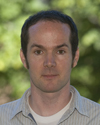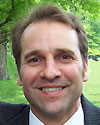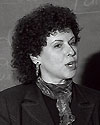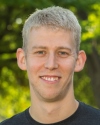CTL poster for 2018 fellows presentations
To view the final CTL Fellows reports, please click on the title of each abstract.
Katherine Bergren, Assistant Professor of English
“Learning from Creative Writing in the Literature Classroom”
In creative writing courses, students regularly read and discuss literature while producing their own stories and poems. By examining how other authors manipulate tone, develop characters, fuss with rhyme, and establish authority, students develop their own methods for doing the same in their own writing. How can this process be reversed in courses focusing on literary analysis rather than creative writing? In other words, what pedagogical role does creative writing have in courses focused not on writing but on close reading? Close reading, a practice common to many disciplines within the humanities, is predicated on a reader’s ability to notice the choices an author has made. Students who have not read voraciously are likely to find this step challenging. My hypothesis is that by doing creative writing of their own, students will develop a heightened awareness of the choices that are available to authors, and become capable of recognizing those choices in assigned texts. As a CTL fellow, my intention is to produce a portfolio of creative writing prompts designed to develop close reading skills in lower and upper-level students of English literature.
Ciaran Berry, Associate Professor of English and Director of the Creative Writing Program
Effective writing, whether creative or academic, is bound to the writer’s ability to control the discrete unit of the sentence and understand the expressive and argumentative possibilities of syntax and grammar. Without a broad sense of how sentences can work both individually and across a poem or story or paper, the chances of writing complexly and fully are much more limited. In essence, limited knowledge of the sentence makes more likely limited thinking and limited expression of that thinking. Developing a broader sense of how sentences can work is particularly important for creative writers, both in terms of being able to fulfill the expressive potential of their own projects, and also in terms of being able to discuss grammar and syntax at an advanced level as they read other writers, but it’s also surely integral to the broad goals of a liberal arts education. My project will focus on sentence making in Introduction to Creative Writing (English 270), which is the gateway course for English (Creative Writing) majors, and also a popular course for students wishing to fulfill the arts general education requirement. I plan on devoting twenty or thirty minutes per week to sentence work as part of my fall and spring sections of English 270. My aim is to produce, out of these mini-lessons and discussions, a set of tools and strategies that I can reuse and/or adapt for future classes and, hopefully, share with other interested faculty. I envision this set of tools as being very broad, not just because I want this work to reach from the nuts and bolts of the sentence to a sense of the expressive possibilities a sentence offers, but also because I want this to be unintimidating, and even fun, for the students.
Martina Di Florio, Visiting Lecturer in Language and Cultural Studies
“Action: Ciak si Gira”
Teaching and learning a new discipline is an enjoyable experience for the instructor as well as for the students, but the process can present challenges often related to the application of new rules and structures. While it can be difficult for the instructor to engage the class in effectively understanding the new rules, it can be frustrating for the students to face the issues related to the memorization and incorporation of them. “Action: Ciak si gira!” is a video project that intends to obtain enhanced learning outcomes throughout a creative activity that should activate – or reactivate – the initial motivation students generally have at the beginning of the course and often lose when facing the memorization and application of new rules and structures. The entire project (from the script to the filming) can be used in different disciplines to guide and motivate students in an active and enjoyable learning journey offering them the opportunity to implement technology, cooperate inside their working group, responsibly claim ownership of the final product and reflect upon their accomplishment.
Eric Galm, Associate Professor of Music
“Toca Brasil; Play Your Way through Brazil”
As a CTL fellow, I propose to revise my course, Toca Brasil! (Play Your Way Through Brazil!),. This course enables students to learn how to play a diverse array of Brazilian folkloric, religious, and social dance music, movement, and drumming rhythms, and then learn about how these function within the social fabric of Brazilian daily life, resulting in a hybrid performance/academic learning style. While retaining this basic structure, I will extend this concept, and focus on how these musical rhythms are used in contemporary Brazilian music-based youth social service groups. We will explore how these organizations draw from traditional Brazilian cultural manifestations to attract urban youth, and provide alternative engagement opportunities. Upon learning about these musical rhythms and how they function within Brazilian music and culture, the students will then brainstorm ways in which some of these successful models might be adapted and/or incorporated into North American urban areas, such as Hartford.
Isaac Kamola, Assistant Professor of Political Science
“Incorporating Multi-Media (and its Critique) in the Classroom”
My course “Understanding Conflict in Africa” is based around the premise that students often claim to know certain truths about Africa when, in reality, such understandings rely heavily upon one-dimensional, a historical representations of the continent—often centered around portrayals of violence in the media and in film. The course encourages students to critically engage such representations of political violence as an opening to view the continent differently. As a CTL Fellow I hope to address two pedagogical areas necessary to meet the learning objectives of this course. First, I plan to learn the technical tools necessary to better incorporate visual media into the classroom, opening a space in class to discuss how Africa is represented. Secondly, I will design assignments that encourage students to critically engage with this material in self-reflective ways. I plan to use the opportunity of being a CTL fellow to focus on designing classroom presentations and assessments that successfully engage students in “reading” movies and media in a more thoughtful and critically aware manner that deepens their understanding of why misconceptions about Africa occur.
Serena Laws, Visiting Assistant Professor of Political Science
In my CTL project, I will work to develop pedagogically effective and mutually beneficial community learning projects relating to social tax expenditures into my upper-level course “The American Welfare State” (POLS 372). In particular, the project will involve developing a partnership with a local community services organization that runs a low-income tax clinic. Because the clinic is volunteer-based, there are many opportunities for students to become involved in providing support for the program, helping with outreach, and analyzing the data collected about those who come to the clinic. I will use the CTL fellowship as a chance not only to explore these opportunities, but also to discuss and receive feedback on how to maximize the learning outcomes from them. Integrating Trinity students into a social provision context raises many challenges, and the CTL fellowship will help me develop strategies and assignments that not only benefit the students but also create a sustainable and mutually beneficial relationship with the organization.
Priscilla Melendez, Adjunct Professor of Language and Culture Studies
“Transforming the Classroom into a Theatrical Space through Collaboration and Team Work”
From a Latin American Play to the Trinity College Stage: Transforming the Classroom into a Theatrical Space through Collaboration and Team Work seeks to redirect my teaching from drama to theatrical performance. The goal will be to move my teaching style from a traditional conversation between the professor and students discussing a Latin American play and doing textual analysis, to creating a space that will allow the emergence of a more radical dialogue, this time among fictional characters performed by students. As part of this transformation, the hope is to empower students through participation and collaboration, as they take ownership of the classroom space, which will be turned into a stage, and the students into actors and performers. After we all experience the necessary changes and transformations, at the end of the semester we will stage a one-act Latin American play in Spanish for the Trinity community –students, faculty and friends—, and if appropriate, extend the invitation to the Spanish speaking community that surrounds our college. This proposal may be of interest to faculty who wish to incorporate the performative aspect of theatre to their teaching of dramatic texts, to those who wants to change the classroom dynamics to encourage greater student participation, and to faculty teaching foreign languages.
John Mertens, Professor of Engineering
“Development of a Sophomore-Level Stand Alone Laboratory Course”
The engineering faculty of Trinity College have a strong interest in developing a variety of students’ skill sets earlier in their academic careers, to enhance their learning in later courses. Students would perform hands-on labs related to different disciplines that would develop skill sets that are applicable and important to numerous science and engineering courses. These include, but are not limited to:
– Lab report writing
– Data analysis
– Presentation of analysis in a clear and sequential fashion
– Hands-on skills with equipment
– Fabrication skills
– Data acquisition (analog and digital)
– How are things measured? (science/engineering of transducers and instrumentation)
– Design of experiments, and the scientific method: what do we want to measure, why
do we want to measure it, and how do we want to measure it?
– Uncertainty Analysis and Error Propagation
This could lead to a more outcome-based teaching approach; not being required to cover the topics and labs that are on the syllabus for a particular lecture course might help to focus on what knowledge and skill sets we want the students to have acquired by the end of the course.
Jane Nadel-Klein, Professor of Anthropology
“Reading and Seeing the Outside World”
In my new first-year seminar, “Reading and Seeing the Outside World,” I want to use nature observing and writing as a way to break through what I see as an increasing disengagement students have with the world beyond their noses (and screens). We will read a variety of texts that demonstrate the power of close observation in “nature writing” and we will also take silent walks. Students will write accounts of these walks which they will then share with their peers and discuss how their ways of seeing compare with those of the writers they read. My project here is to figure out which settings and assignments will be most effective in helping students to reflect upon their own habits of observation and to think about how observation itself leads to inferences about “evidence.” I will look for different kinds of observational challenges and at the end of the seminar, ask students to think about how their observational habits have changed.
Ray Pellico, Visiting Assistant Professor of Mathematics & Allie Ray, Visiting Assistant Professor of Mathematics
“Transitioning Students to College-Level Mathematics by Flipping the Classroom”
First-year students sometimes struggle in Calculus 1 even if they previously had Calculus in high school. This is because college-level mathematics focuses more on a conceptual understanding rather than just computational algorithms used to solve certain problems. To address this issue, our project aims to leverage technology (including making videos using whiteboard apps for the iPad) to incorporate a flipped classroom element to the Calculus 1 experience. In doing so, the students will be introduced to the computational parts of the course at home, which will free up class time to discuss big picture concepts through active discussion, group work, or other activities instead of passive note taking. A flipped classroom encourages students to take a more active role – rather than a consumer role – in their learning, which is beneficial to succeeding in college-level mathematics courses.
Todd Ryan, Associate Professor of Philosophy
“Investigating Techniques for Representing Argumentative Structure”
One of our central aims as instructors is to teach students how to read complex, argumentative texts. In my experience, this often involves fostering the crucial skill of reconstructing individual arguments into premises and conclusion. However, an equally important—and challenging—task is to analyze the overall argumentative structure of an essay. Briefly, such an analysis involves determining what thesis or theses the author will be arguing for and how the essay is organized so as to achieve these goals. The kind of analysis I imagine would be one in which the reader systematically breaks down the structure of the essay, asking of each individual paragraph what is its role in the overall argument (stating a thesis, supporting a premise, setting out a criterion, offering an example, responding to an objection, etc.) and then examining how these individual paragraphs work together to form a coherent whole. In addition to reflecting on the techniques themselves, I wish to think about the pedagogical strategies for fostering these skills in students. This will include investigating techniques for representing argumentative structure, constructing effective assignments and evaluating student progress.
Sebastian Skardal, Assistant Professor of Mathematics
Linear algebra is a core part of the curriculum for a mathematics degree from virtually any college or university. Moreover, the concepts and techniques from linear algebra are wide reaching, with immediate applications in the vast majority of sciences and other quantitative fields. Not unlike many other liberal arts institutions, the mathematics department at Trinity has placed at the heart of its traditional linear algebra course (MATH 288) an emphasis on proof-writing and abstraction. While such concepts are important for undergraduate mathematics majors with a focus in pure mathematics, this focus has partially hindered the exploration of those practical and computational aspects of linear algebra that are important for students with an interest in applied mathematics and other sciences. Applied linear algebra (MATH 229) is a new course at Trinity as of fall 2017. At the core of this new course will be a focus on interdisciplinary science and applications. We will create a foundation from a series of applications taken from various disciplines, and use this foundation to motivate both the theoretical and practical portions of the material. A particular focus will be placed on computation, with an emphasis placed on implementing concepts in computer code written in MATLAB to solve real-world problems. Examples of applications that will serve as the course’s foundation will be medical imaging, quantum states, Google’s PageRank algorithm, Markov chains, networks, and the computation and analysis of solutions to various difference and differential equations. In addition to exposing students to a topics in applied mathematics with an interdisciplinary flavor, I hope that this class will serve in bridging certain gaps that exist between different departments at Trinity and foster stronger relationships between the various sciences in general.













